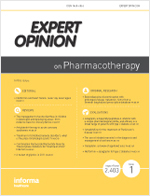
Zaltoprofen is noninferior to diclofenac for the treatment of knee OA

Zaltoprofen is noninferior to diclofenac for the treatment of knee OA
Zaltoprofen, a noninferior alternative to diclofenac for the treatment of primary knee osteoarthritis -- a comparative evaluation of efficacy and safety in a 4-week, multicentric, randomized, double-blind, double-dummy trial
Expert Opin Pharmacother. 2011 May;12(7):1007-15. doi: 10.1517/14656566.2011.566867. Epub 2011 Apr 7Did you know you're eligible to earn 0.5 CME credits for reading this report? Click Here
Synopsis
This study evaluated whether zaltoprofen was as a noninferior alternative (in regards to safety and efficacy) to diclofenac for the treatment of knee osteoarthritis (OA). 213 patients were randomized to either zaltoprofen (80 mg t.i.d.) or diclofenac (50 mg t.i.d.) and were assessed after 4 weeks. Results indicated that both groups experienced significant (but comparable) improvement in pain inten...
To view the full content, login to your account,
or start your 30-day FREE Trial today.
FREE TRIAL
LOGIN
Forgot Password?
Explore some of our unlocked ACE Reports below!

Learn about our AI Driven
High Impact Search Feature
Our AI driven High Impact metric calculates the impact an article will have by considering both the publishing journal and the content of the article itself. Built using the latest advances in natural language processing, OE High Impact predicts an article’s future number of citations better than impact factor alone.
Continue



 LOGIN
LOGIN

Join the Conversation
Please Login or Join to leave comments.